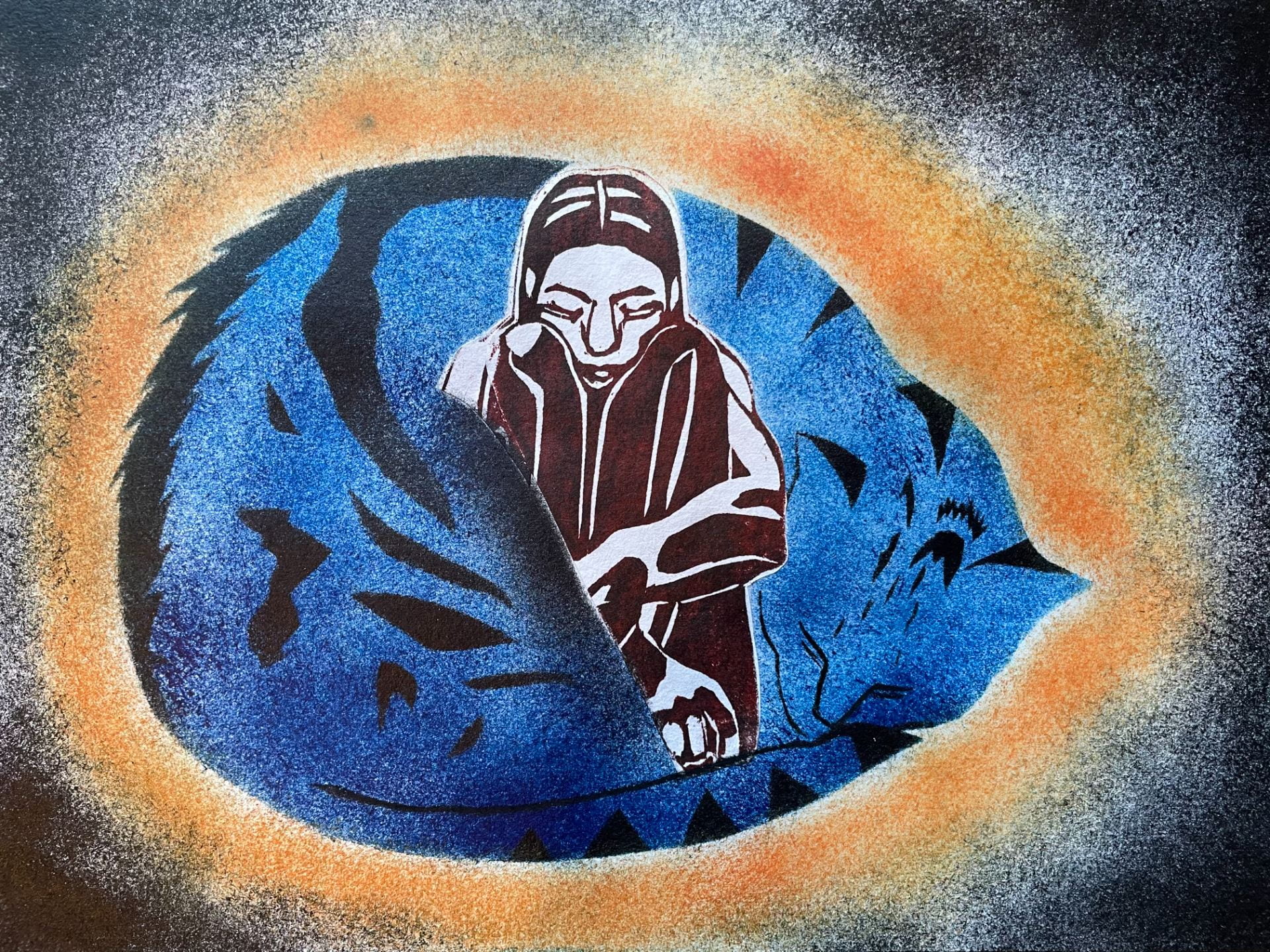By CLARA CHIU
The envelopes began arriving over two months ago: blank white rectangles slipped through the mailslot at odd hours of the day. At first, they gathered in a pile on the floor before I took pity and relocated them to the kitchen table. There wasn’t any return address, but if I held them up to the light I could see the faint outline of a letter inside, the imprints of each word carved into the paper. It’s interesting – to think that a letter contains a multitude of itself.
But I can feel your impatience. I am narrating this to you, Mother, so that you will remember me for more than a memory. — What is your obsession with letters? you would say. This is what you said when I told you I was going to spend the rest of my life studying words. You say I’m an author. I am, in fact, a writer. The distinction is crucial: an author writes for an audience. A writer writes to an audience. Yet perhaps I’m wasting my time, speaking to a listener who won’t respond.
—
On the fourteenth day, the envelopes had overflowed from the table in a white cascade. A stubborn pile of snow, insensitive to the changing climate. I packed them in a cardboard box and stowed them in the back of my closet next to the bouquet of dried lavender.
They say there is room for only one story on the page, and I cannot tell whose it is.
—
When you said you had something growing inside of you, I thought you meant guilt. Until your eyes, already recalling the future, spoke what you could not. How the presence of the tumor was realized by the paper held in your hand. How you offered this paper to me as if you could pass off the reality of it. And then: a light touch on my shoulder. To confirm, for a brief moment, that I existed. To think that my existence could somehow reconcile the fragments of before and after. Yet when you reached for my shoulder you touched only a child, awoken into a nightmare and seeking refuge at your feet. — Did you know? The word hysteria originates from the uterus. A seed of mania borne in the womb, born to the world, a bourn between the before and after. The existence you sought for was still being created: the child, a bundle of hysteria, swaddled in a fleece blanket like a mummy.
—
I saw one once: a mummy, trapped behind a clear glass case in the British Museum. You took me there to marvel at the victors of history – not the stories of the artifacts but the stories of who possessed them. We stood at the foot of that unnamed mummy until a respectful period had passed, until linen wrapping blended into yellowed bone and the mask meant to hide death had become its face.
I tugged on your sleeve. — Why did we come here to look at a dead body?
— It isn’t just a dead body. It’s a piece of history.
— How long does it take for a dead body to become a piece of history?
You pause. — Seventy days.
—
We are not all too different, you and I:
- Because we put our hand to our chest and felt a stranger.
- Because, when the drug took effect, we watched our hair fall to the ground in clumps and felt relief.
- Because after they stitched us back up we had to wrap our bodies in bandages to reveal the imperfections.
Perhaps I’m not being fair, assigning you a fragment and calling it a whole. Now that I possess your story, it seems wrong to inhabit a body already broken by itself. Is this what it feels like to be written: to be a nameless corpse examined through glass?
But while you sought for a name, I ran from mine. The word was an expectation I thought I could escape through distance. It was not mine to own, but yours: one you had shaped in your mouth long before I existed, the vowels stretched between your teeth, wrapped in a judgment I didn’t want. I wanted only to leave behind the village and all that was wrong with it. And so I mistook home for Omelas, diluted the past with the length of a country. Yet when the hysteria had settled, I was left with a name stripped bare of history. But what is in a name?
— what is in a name you said when they promised just one last test — what is in a name you said when you took your last dose of tamoxifen — what is in a name — yet, in the end, you have finally reclaimed it. Your name, curled in the back of my throat. Your name, lying heavy over your chest, each letter carved in stone and decorated with lavender.
And so, I address this letter to you and seal it up in a white envelope.
After all, who am I writing to — if not a piece of history, gone seventy days?
Writer | Clara Chiu ’27 | cchiu27@amherst.edu
Editor | Sarah Wu ’25 | sdwu25@amherst.edu
Artist | Cecelia Amory ’24 | camory24@amherst.edu
